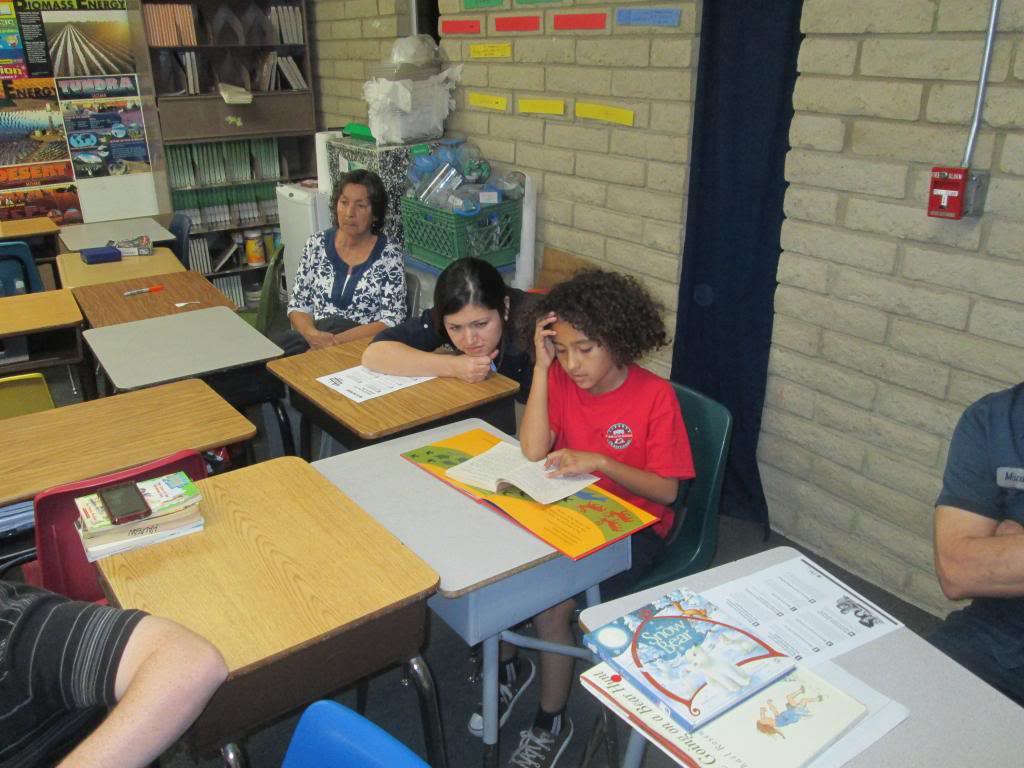April 2016 marks the 20th anniversary of National Poetry Month. According to the Academy of American Poets, this observance has become the “largest literary celebration in the world, with tens of millions of readers, students, K-12 teachers, librarians, booksellers, literary events curators, publishers, bloggers, and, of course, poets marking poetry’s important place in our culture and our lives.”
Their site, poets.org, has information and resources about some special events and programs celebrating poetry, including the Dear Poet project for kids from K-12. You can also find local poetry readings, such as those happening all month at Arizona Humanities in Phoenix and at the UA Poetry Center in Tucson, and events, like Tucson Poetry Festival XXXIII, one of the longest running events of its kind in Arizona.
Smaller community events are also common, particularly at area libraries and booksellers, as well as locations that support local poets and host readings all year long. We encourage you to find a way to celebrate and explore poetry that fits your family’s schedule and style.
Pushed Aside
Poetry is an oral tradition that harkens back to early civilization, as well as early childhood development. Many children are exposed to poetry through nursery rhymes, lullabies, and storybooks. But all too often, once they get into school poetry is pushed aside in favor of expository writing and the analysis of non-literary texts. Poetry has become little more than a supplement to other subjects rather than something studied on its own.
What’s the Deal?
Poetry, in various studies and academic writings, including “Poetry Proves to be Positive in the Primary Grades,” has been shown to affect students’ language, cognitive, physical, and socio-emotional development. Poetry can help improve reading and writing, help children develop creative problem solving and critical thinking skills, while helping build character, self-awareness, and understanding of others.
All through their academic careers poetry can impart lessons, improve skills, and contribute to student growth. Poetry can be a gateway to learning—writing poetry can lead students to other writing forms, as well as give them a mastery over language which can help them excel academically. After all, according to Andrew Simmons, a California-based teacher and writer, “all forms of writing benefit from the powerful and concise phrases found in poems.”
Growth in Literacy
Poetry can teach many things:
- Word recognition
- Syntax
- Semantics
- Discourse
- Affect
- Socialization
- Memory
- Patterns & Sequences
- Grammar
- Literary Concepts
In other words, poetry can be a crucial tool in children’s academic success.
Body Awareness
Reciting poetry aloud, whether original or the work of another poet, can give students confidence in public speaking skills. Recitation can also help children develop awareness of breath coordination, mouth movements, and other physical gestures. In addition, the practice helps them coordinate these skills to the rhythm and emotional level of a given poem.
In the Spotlight
Poetry is expression. It possesses the power to connect students to themselves, connect learning with enjoyment, and connect children to one another in a larger sense of community. It can show them new ways to communicate with one another and the world, while helping them understand themselves, their thoughts, and feelings. It demonstrates how to link to larger, external contexts, as well as dilute the outside world to the interior. Poetry helps create aware, understanding students with strong character and critical thinking skills.
Need some help to find poetry for kids? Try here:
- Poetry Month Booklist: A resource for Pre-K through 8th grade from Scholastic
- Poetry Books for Kids: This list by Common Sense Media includes selections that are sure to interest kids of all ages from preschool to teens
- Best Children’s Poetry Books: From Goodreads, this list of 169 books includes poetry collections and entire books of verse written for children and ranked by reader ratings
- 15 Great Poetry Books for Kids: A guide to “the best in verse” from Grandparents.com
- 50 Best Poetry Books for Kids: A long comprehensive list of modern and classic poetry favorites
Want to know more about the importance of poetry in education?
- Why Teaching Poetry is So Important (The Atlantic)
- How Poems for Kids Boost Reading Skills (Scholastic)
- Five Reasons Why We Need Poetry in Schools (Edutopia)
- Poetry Proves to be Positive in the Primary Grades (Reading Horizons)


Leave a Reply